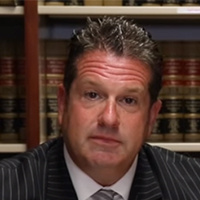 Hicksville Criminal Lawyers, New York
Hicksville Criminal Lawyers, New York
Sponsored Law Firm
-
 x
x

Click For More Info:
-
Law Office of Adrienne D. Edward P.C.
549 Summit Ave Jersey City, NJ 07306» view mapCriminal Defense & Family Law Effective Legal Strategies
Our practice is committed to serving the unique needs of every client. We strive to make you feel heard, valued, and empowered at every stage of the legal process.
201-420-8850
Sponsored Lawyers
1-10 of 29 matches
Misdemeanor, Personal Injury, Immigration, Traffic, Felony
Vincent Bianco is a practicing lawyer in the state of New York. He received his J.D. from Hofstra University in 1999.
(more)Divorce & Family Law, Lawsuit & Dispute, Criminal, Juvenile Law, Real Estate
Since the firm's inception, Darren M. Shapiro, Esq. has been focusing on matrimonial and family law. His background in civil litigation and criminal defense has proven very useful in providing effective representation. This office can handle a variety of legal needs. As an experienced divorce attorney in Long Island and New York City, Mr. Shapiro personally represents all of the firm's clients. We strive to get the best results for our clients whether by litigation, settlement negotiations, or one of the alternative methods such as collaborative law or mediation. Call for a free initial phone consultation. Only reasonable fees are charged. Darren M. Shapiro, Esq. received his Bachelor of Arts from Emory University and Juris Doctor from the University of Miami School of Law. He was admitted to the New York State Bar in January 1999. Mr. Shapiro was admitted to federal practice for the United States District Courts for the Southern and Eastern Districts of New York in 2000. All major credit cards are accepted.
(more)Criminal, DUI-DWI, Misdemeanor, Motor Vehicle, Traffic
I am an experienced attorney in New Jersey with substantial experience in municipal court handling traffic matters and criminal cases. I work hand in hand with my clients to ensure all of your questions are answered and progress throughout your case is seamless. I have dedicated my practice to ensure each client receives the attention and dedication they deserve to navigate through the legal system. I will be with you every step of the way to make sure your rights are diligently represented. We’re in this together!
(more)Accident & Injury, Bankruptcy & Debt, Criminal, Estate
Eugene Litman, Esq. established Litman & Litman, P.C. in 1958. Eugene raised his four sons with aspirations that they would join him in the legal profession. He and his sons often discussed legal cases and argued their potential outcome over the dinner table. Eventually, all four of Eugene’s sons took up the legal profession by becoming lawyers. Two of Eugene’s sons, Jeffrey Litman and Kenneth Litman, joined their father’s firm. Today they have nearly 100 years of combined legal experience in personal injury law. Eugene Litman earned his degree from Brooklyn Law School while both Jeffrey Litman and Kenneth Litman earned their J.D. degrees from Touro College Jacob D. Fuchsberg Law Center. Jeffrey received a B.S. in Management from Boston University while Ken earned his B.S. in Management from Arizona State University. The Litman family has brought justice to thousands of clients by securing hundreds of millions of dollars in compensation for them. With degrees in both law and business, they are more than qualified to defend your interests. They will accommodate your schedule with visits to your residence, hospital, or nursing home. They treat clients and their client’s circumstances with sensitivity. They understand that clients are potentially dealing with personal tragedies such as personal injury and wrongful death. The Litman team remains competitive and keeps apprised of the latest legal matters by extensive readings, attending conferences, and constant networking. They have met many leaders in American law, including United States Supreme Court Justices Sonia Sotomayor, Ruth Bader Ginsburg, and Antonin Scalia.
(more)


 Adrienne D. Edward Jersey City, NJ
Adrienne D. Edward Jersey City, NJ Practice AreasExpertise
Practice AreasExpertise




